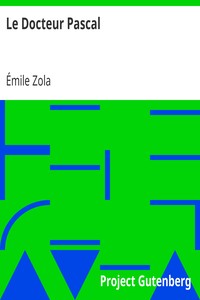| Summary |
"Le Docteur Pascal" by Émile Zola is a novel written in the late 19th century, forming part of Zola's broader "Les Rougon-Macquart" series. The story centers around Doctor Pascal Rougon, a physician dedicated to researching heredity and the complex nature of life, set against the backdrop of the socio-political turmoil in France during the Second Empire. The narrative unfolds with a focus on Pascal's relationships with his young niece Clotilde and their domestic companion Martine, showcasing the dynamics of family, science, and faith. At the start of the novel, readers are introduced to Doctor Pascal in his tranquil study during a hot July afternoon. He is preoccupied with his work on hereditary studies, often engaging with Clotilde, who assists him in sketching flowers for his research. Their routine is disrupted by discussions about Pascal's unconventional methods and the shadow of his familial legacy, particularly concerning his brother Saccard's controversial political maneuvers. As the characters navigate the tension between science and faith, Clotilde's aspirations for Pascal's acceptance of religion come into conflict with his scientific beliefs, setting the stage for deeper explorations of personal and familial identities. The opening chapters establish a rich setting that blends domestic life with Zola's intricate explorations of nature and society. (This is an automatically generated summary.)
|

